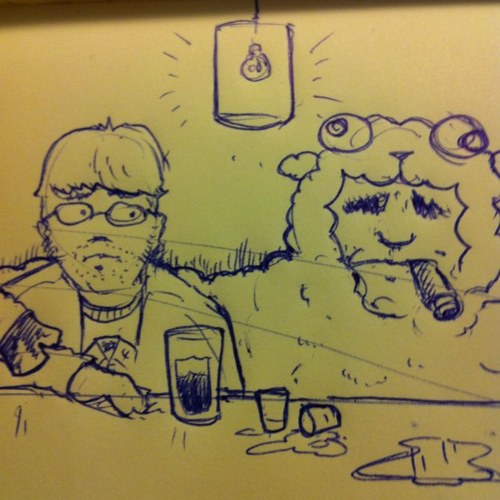After The Walking Dead finale last night, my sad nerd brain started churning with the question: why do I like this?
Not in the “this is a terrible version of my beloved comic book!" (It isn’t. Season 2 finale is worth watching and purchasing if you’re convinced the show fell off recently.) Looking back over the entirity of the season, there’s a lot that’s changed from the second volume that did and didn’t make it on screen. Tyreese, the football player with his daughter and her boyfriend, never appears; three characters die that chronologically should have been safe and Hershel has an interesting choice (spoilers, etc.)
But would that ever be allowed for a comic adaptation that wasn’t, argurablly, independent? Image Comics aren’t under the same scrutiny that Marvel/DC are, since their last attempts at being multi-platform were Todd McFarlane’s Spawn and cartoons of The Maxx and Savage Dragon. Could there be a version of “Spider-Man" where Uncle Ben doesn’t die and instead lives a happy life, consuling Peter, with Aunt May? Or say, “X-Men" where Charles Xavier walks?
Subtle changes, along with radical ones, are the subject of Elseworlds and one-shots ("Superman: Red Son" had the Man of Steel landing in Russia instead of Kanas; “Batman: The Dark Knight Returns" is a what-if about a retired Bruce Wayne coming back to the tights.) But none hold up on TV or film like The Walking Dead has. The closest thing I can think of is Smallville and it taking roughly a decade to make Clark Kent into Superman while dealing with imagined versions of other heroes and villains set against a Dawson’s Creek formula.
Kinda wish more authors and established (even not-so-much) series would toy with changing concepts for visual media. Then again, there’s the Darren Aronofsky script for a Batman film where Alfred is “Big Al," an inner-city mechanic who trains Bruce Wayne to be Batman and builds him a car out of scrap metal. But who knows! It could’ve been really cool…eh…maybe not.
